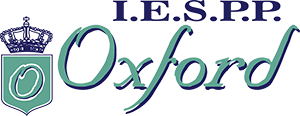Norma Elizabeth Espejo Zavaleta [1]
Resumen
La investigación es de tipo aplicada, tiene un carácter experimental, su naturaleza es cuantitativa y con un alcance transversal, en la medida que se aplicará el taller de creación literaria para mejorar la producción de cuentos en los 2016.
El estudio tiene un diseño cuasi experimental con una muestra de 130 estudiantes, divididos en dos grupos de 34 estudiantes cada uno, realizándose un muestreo de tipo no probabilístico.
El taller de creación literaria permitió mejorar significativamente el nivel de producción de cuentos del área de comunicación, mostrando en los estudiantes del primer grado de educación secundaria un desenvolvimiento adecuado durante la redacción de sus textos, haciendo uso de gran imaginación al redactar los hechos que se presentarán en el inicio, nudo y desenlace de su historia, relacionándolos con vivencias o experiencias de su vida diaria, que les permitió alcanzar los niveles logro previsto y destacado.
En la dimensión de planificación, el taller de creación literaria mejoró significativamente la producción de cuentos del área de Comunicación, permitiendo que los estudiantes del primer grado, mejoren en la identificación del tema, narrador, personajes, escenarios y tipo de registro lingüístico, alcanzando el 97% los niveles logro previsto y logro destacado.
El nivel de la dimensión textualización de la producción de cuentos, los estudiantes redactan sus textos respetando la estructura narrativa con su secuencia de hechos, uso de conectores y referentes, alcanzando puntaje entre los niveles proceso y logro destacado el 88% del total.
También el nivel de la dimensión de reflexión en la producción de cuentos permitiendo que los estudiantes revisen sus textos para mejorar la coherencia y cohesión de los mismos, llegando a ubicarse entre los niveles proceso y logro destacado, 91% del total. Mientras que en grupo el control los estudiantes se mantuvieron ubicados en los niveles, previo al inicio e inicio llegando al 77% los estudiantes 2016.
Palabras claves: Taller, creación, literaria, producción, cuentos, planificación, textualización y reflexión.
Literary creation about story production
Abstract
The research is of applied type, has an experimental character, its nature is quantitative and a transverse extent, to the extent that the creative writing workshop will be applied to improve production of stories in first grade students education 2016.
The study has a quasi-experimental design with a sample of 130 students, divided into two groups of 34 students each, performing sampling non-probabilistic.
The creative writing workshop allowed significantly improve the level of production of stories in the area of communication, showing students first grade secondary education proper development during the drafting of texts, using imagination when writing the facts will present at the beginning, middle and end of his story, relating experiences or experiences of daily life, which allowed them to reach the levels expected accomplishment and outstanding.
In the dimension of planning, creative writing workshop significantly improved the production of stories in the area of communication, allowing students first grade, to improve the identification of the subject, narrator, characters, settings and kind of linguistic register, reaching 97% levels expected accomplishment and outstanding achievement.
The level of production textualization stories dimension, students write their texts respecting the narrative structure with its sequence of events, use of connectors and references, reaching levels score between process and achieving outstanding 88% of the total.
Also the level of the dimension of reflection in the production of stories allowing students to revise their texts to improve the coherence and consistency of the same, reaching levels fall between process and remarkable achievement, 91% of the total. While in control group students they remained located in the pre-start and start levels reaching 77% of EI students. 2016. transverse extent, to the extent that the relationship will apply reading strategy to improve reading comprehension in students from fourth grade education IE Americano secondary education 2016.
The study has a quasi-experimental design with a sample of 60 students, divided into two groups of 30 students each, performing a nonparametric intentional sampling. Students in the experimental group were given a reading text and apply a questionnaire with thirty questions covering three dimensions: Dimensions literal, inferential dimension and criterial,
Applying the ratio of reading strategy allowed significantly improve the level of reading comprehension of the communication area showing that fourth graders in secondary education, adequate desemvolvimiento during his reading, answer the questions as to whom refers reading, interpreting the implicit or explicit messages found in his reading and relating these facts that happens in everyday life reaching middle to high levels 100% of the total.
The application of the relationship reading strategy allowed significantly improve the level of literal dimension, the reading comprehension of the communication area, allowing students in fourth grade, to improve the identification of the subject, point out the facts, events and answer the questions where the events took place and when it took place, reaching high and medium-high levels, at 100% of the total. The level of inferential dimension of reading comprehension has enabled students to infer the intent of the sender, build relationships and assumptions during its reading, reaching in the middle to high levels to 100% of the total. Also the level of criterial dimension of reading comprehension, allowing students to express their views and casting their value judgments coming in high and high one, 100% of average levels. While the control group maintained their location at all three levels, low, medium, medium-high, reaching 100%, of IE Americano secondary education 2016.
Ketwords: Workshop, creation, literary, production, stories, planning, and reflection textualization
[1] La autora del presente artículo de profesión profesora y su dirección electrónica es; elisa242003@hotmail.com y labora en la Institución Educativa Institución Educativa Carlos Wiesse del distrito de Chao de la ciudad de Virú del Departamento de la Libertad del país de Perú.
